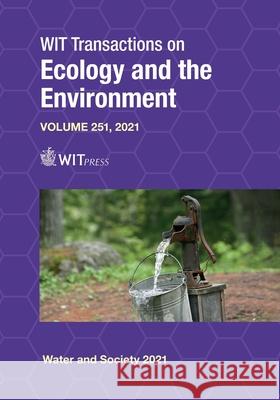Water and Society VI » książka
Water and Society VI
ISBN-13: 9781784664237 / Angielski / Miękka / 2021 / 122 str.
Over the centuries, civilisations have relied on the availability of clean and inexpensive water. This can no longer be taken for granted as the need for water continues to increase due to the pressure from a growing global population demanding higher living standards. Agriculture and industry, major users of water, are at the same time those that contribute to its contamination. Water distribution networks in urban areas, as well as soiled water collection systems, present serious problems in response to a growing population as well as the need to maintain ageing infrastructures. Many technologically feasible solutions, such as desalination or pumping systems are energy demanding but, as costs rise, the techniques currently developed may need to be re-assessed. The socio-political implications of a world short of clean, easily available water are enormous. It will lead to realignments in international politics and the emergence of new centres of power in the world. Policymakers need to be educated and advised on developing policies and regulations that will support the water systems of tomorrow. The role of society and its involvement with water is paramount. To meet the future demands for water, new standards, new training and additional support roles will best be delivered by those knowledgeable of the new technologies and direction of the industry. This volume highlights research on issues related to the nature of water, and its use and exploitation by society.











